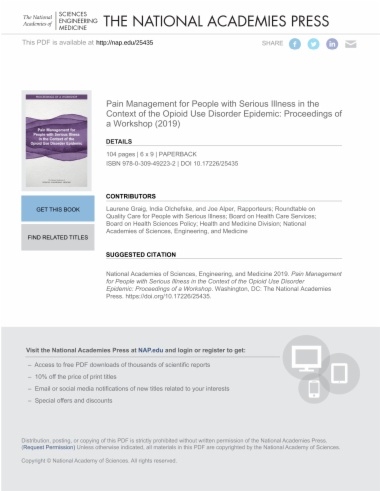

The United States is facing an opioid use disorder epidemic with opioid overdoses killing 47,000 people in the U.S. in 2017. The past three decades have witnessed a significant increase in the prescribing of opioids for pain, based on the belief that patients were being undertreated for their pain, coupled with a widespread misunderstanding of the addictive properties of opioids. This increase in prescribing of opioids also saw a parallel increase in addiction and overdose. In an effort to address this ongoing epidemic of opioid misuse, policy and regulatory changes have been enacted that have served to limit the availability of prescription opioids for pain management.
Overlooked amid the intense focus on efforts to end the opioid use disorder epidemic is the perspective of clinicians who are experiencing a significant amount of daily tension as opioid regulations and restrictions have limited their ability to treat the pain of their patients facing serious illness. Increased public and clinician scrutiny of opioid use has resulted in patients with serious illness facing stigma and other challenges when filling prescriptions for their pain medications or obtaining the prescription in the first place. Thus clinicians, patients, and their families are caught between the responses to the opioid use disorder epidemic and the need to manage pain related to serious illness.
The National Academies of Sciences, Engineering, and Medicine sponsored a workshop on November 29, 2018, to examine these unintended consequences of the responses to the opioid use disorder epidemic for patients, families, communities, and clinicians, and to consider potential policy opportunities to address them. This publication summarizes the presentations and discussions from the workshop.